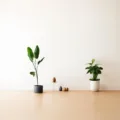Introduction
The COVID-19 pandemic has brought about unprecedented changes in our daily lives. For some, it has been a period of reflection and adaptation. For me, it was an opportunity to embrace van life for five months. Living on the road during a global crisis provided invaluable lessons that I will carry with me forever.
The Freedom of Minimalism
One of the most significant lessons van life taught me was the beauty of minimalism. With limited space, I had to prioritize what was truly essential. This shift in mindset not only made my living situation more manageable but also freed me from the clutter and consumerism that often dominate our lives. By focusing on what I needed, I found a sense of freedom and simplicity that was both refreshing and liberating.
The Importance of Flexibility
Living in a van during a pandemic required a high degree of flexibility. Travel restrictions, closed facilities, and changing regulations meant that plans had to be fluid. This experience taught me to go with the flow and adapt to circumstances beyond my control. Embracing flexibility allowed me to enjoy the journey and find beauty in unexpected places.
Connection with Nature
Spending extended periods in nature was one of the most rewarding aspects of van life. Without the distractions of city living, I found solace and inspiration in the natural world. Whether it was waking up to a breathtaking sunrise or hiking through serene landscapes, nature became a healer and a teacher. This connection with the environment fostered a deeper appreciation for its beauty and a commitment to its preservation.
The Value of Community
Despite the isolation that can come with van life, I discovered a vibrant and supportive community of fellow travelers. Through social media groups and chance encounters, I connected with like-minded individuals who shared tips, stories, and encouragement. This sense of community was crucial during challenging times and reminded me of the importance of human connection, even from a distance.
Self-Sufficiency and Resilience
Living in a van required a level of self-sufficiency that I had never experienced before. From finding water sources to managing power and waste, I learned to rely on my resourcefulness and problem-solving skills. This experience built my resilience and gave me confidence in my ability to handle adversity. It was empowering to know that I could thrive in a minimalist, mobile lifestyle.
Personal Growth and Reflection
Van life during the pandemic also provided ample time for personal growth and reflection. The slower pace and solitude allowed me to delve into my thoughts, goals, and aspirations. I journaled, meditated, and set intentions for the future. This period of introspection was transformative, helping me to realign my priorities and focus on what truly matters in life.
FAQ
1. What were the biggest challenges of van life during the pandemic?
The biggest challenges included dealing with travel restrictions, finding open facilities, and managing isolation. However, these challenges also taught me to be resourceful and adaptable.
2. How did you stay connected with others while on the road?
I stayed connected through social media, online communities, and occasional meet-ups with other van lifers. Technology played a crucial role in maintaining relationships and finding support.
3. What are some essential items for van life?
Essential items include a reliable power source, water storage, cooking equipment, and a comfortable sleeping setup. Minimalism is key, so only bring what you truly need.
4. How did you manage hygiene and sanitation?
I used portable toilets, outdoor showers, and biodegradable hygiene products. Finding clean water sources was a priority, and I practiced Leave No Trace principles to minimize environmental impact.
5. Would you recommend van life to others, especially during a pandemic?
Yes, but with caution. Van life can be an incredible experience, but it’s essential to be prepared for challenges and prioritize safety. It’s a unique way to embrace minimalism and connect with nature.









